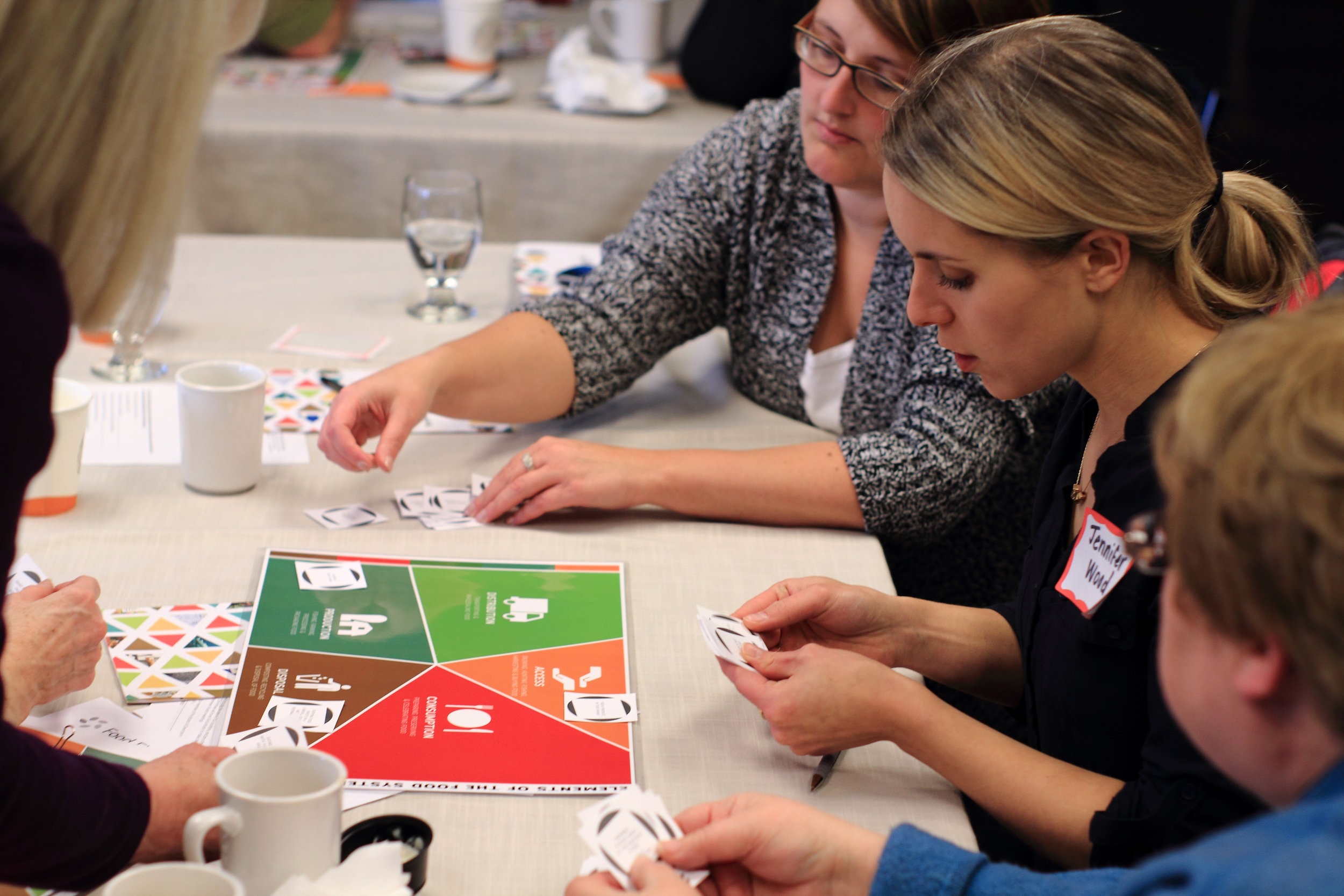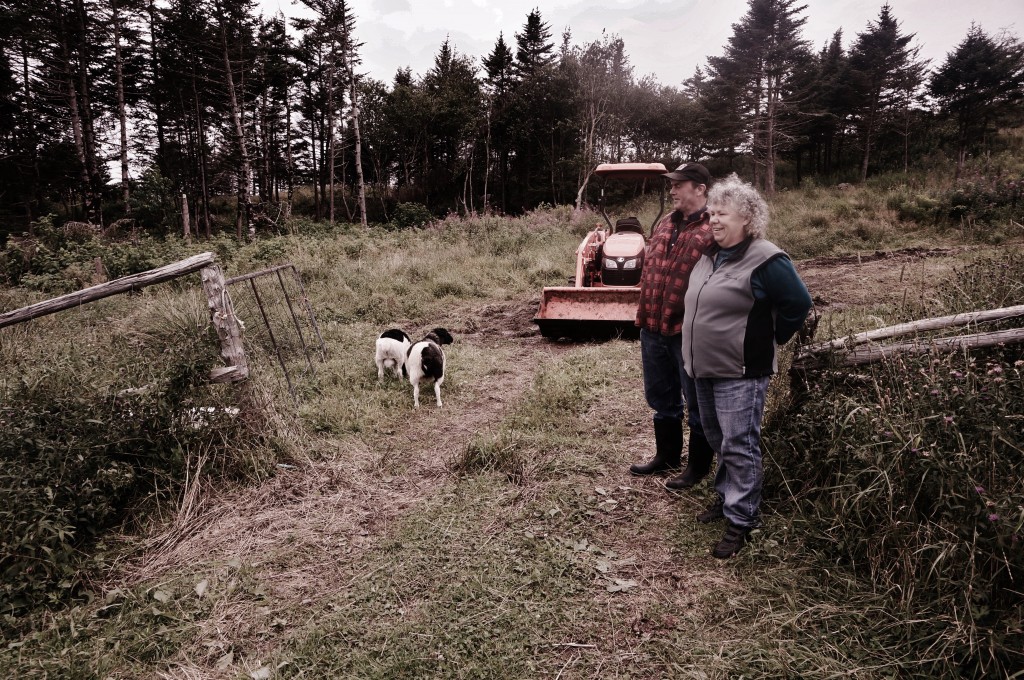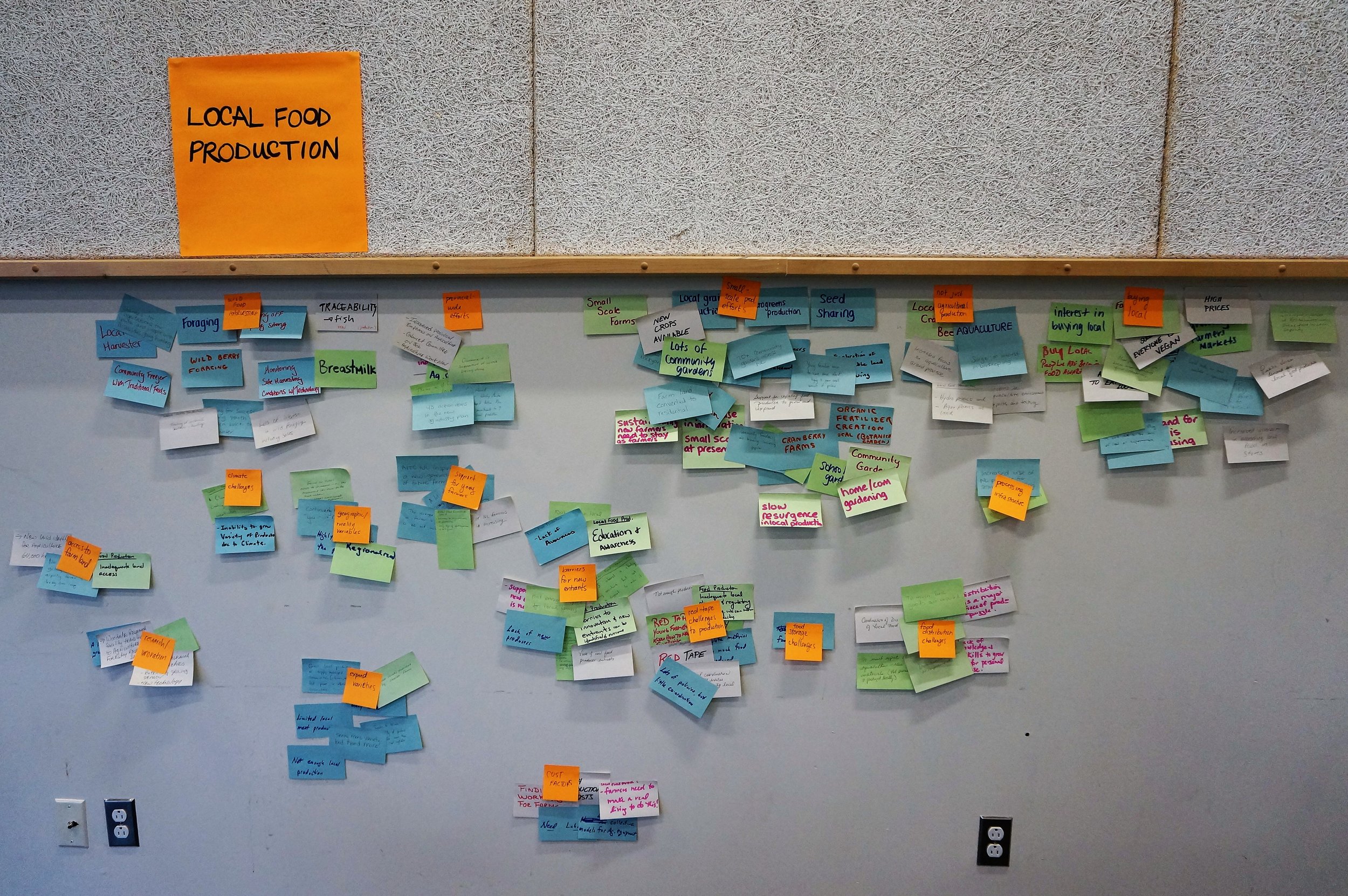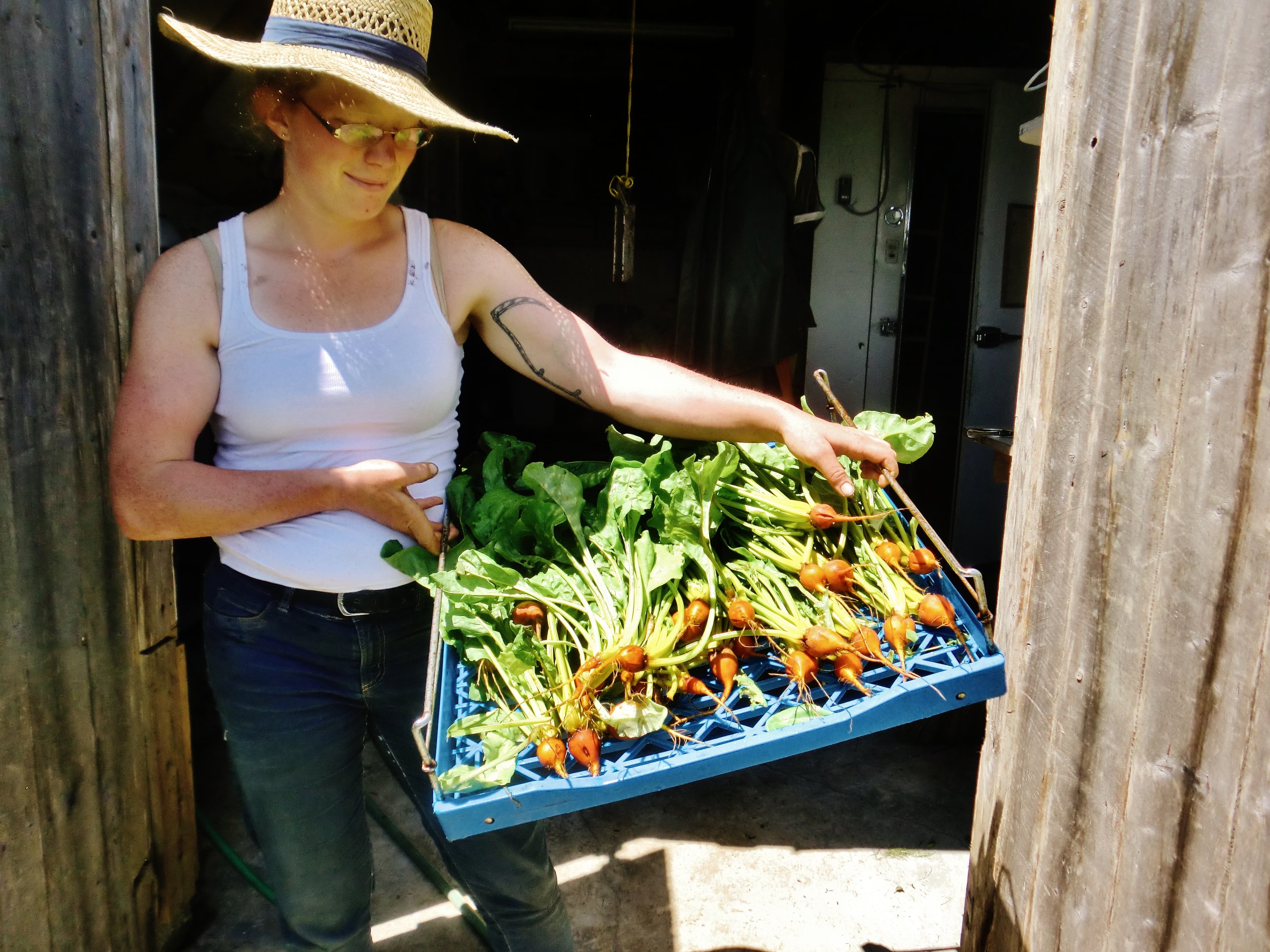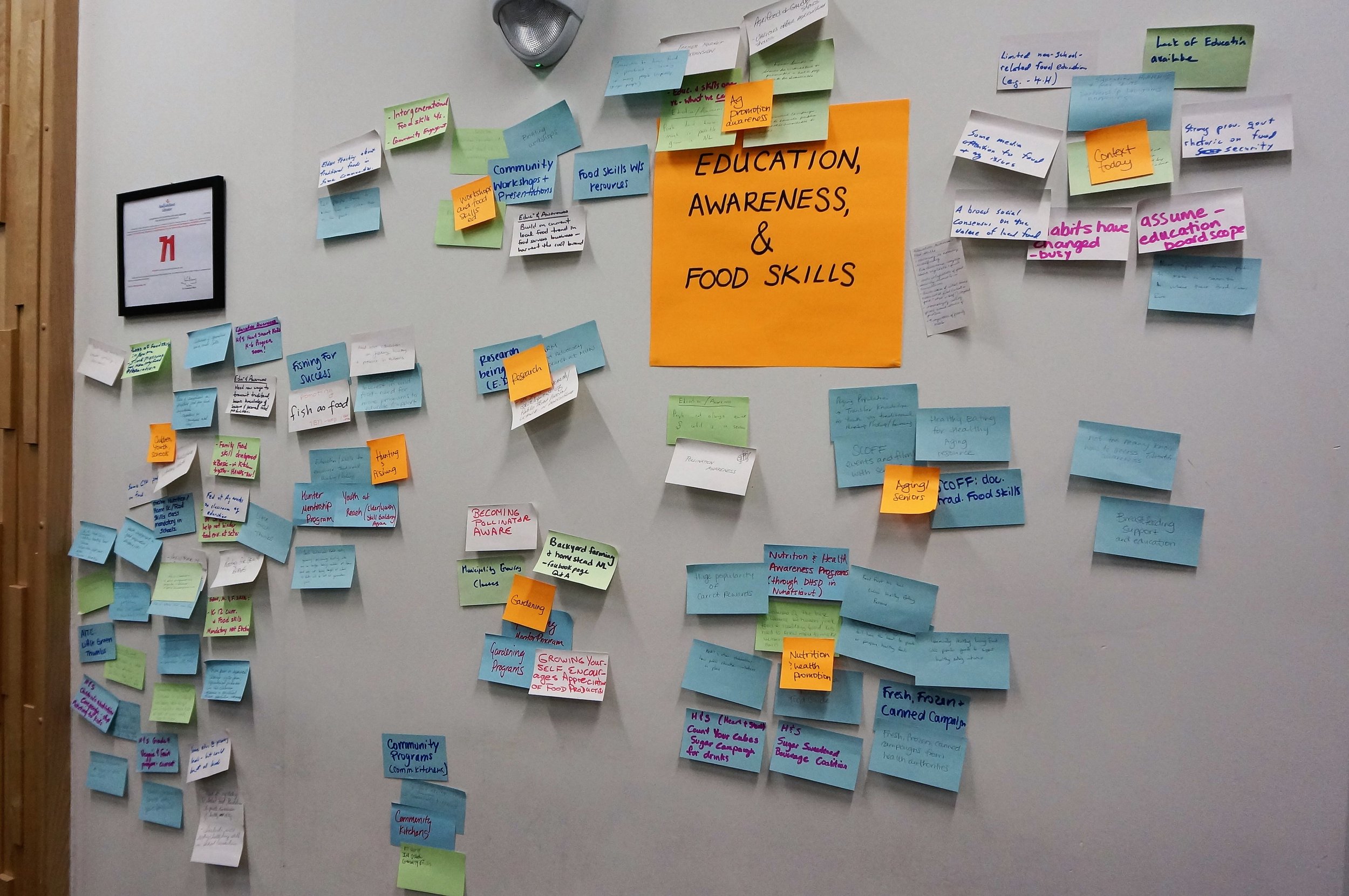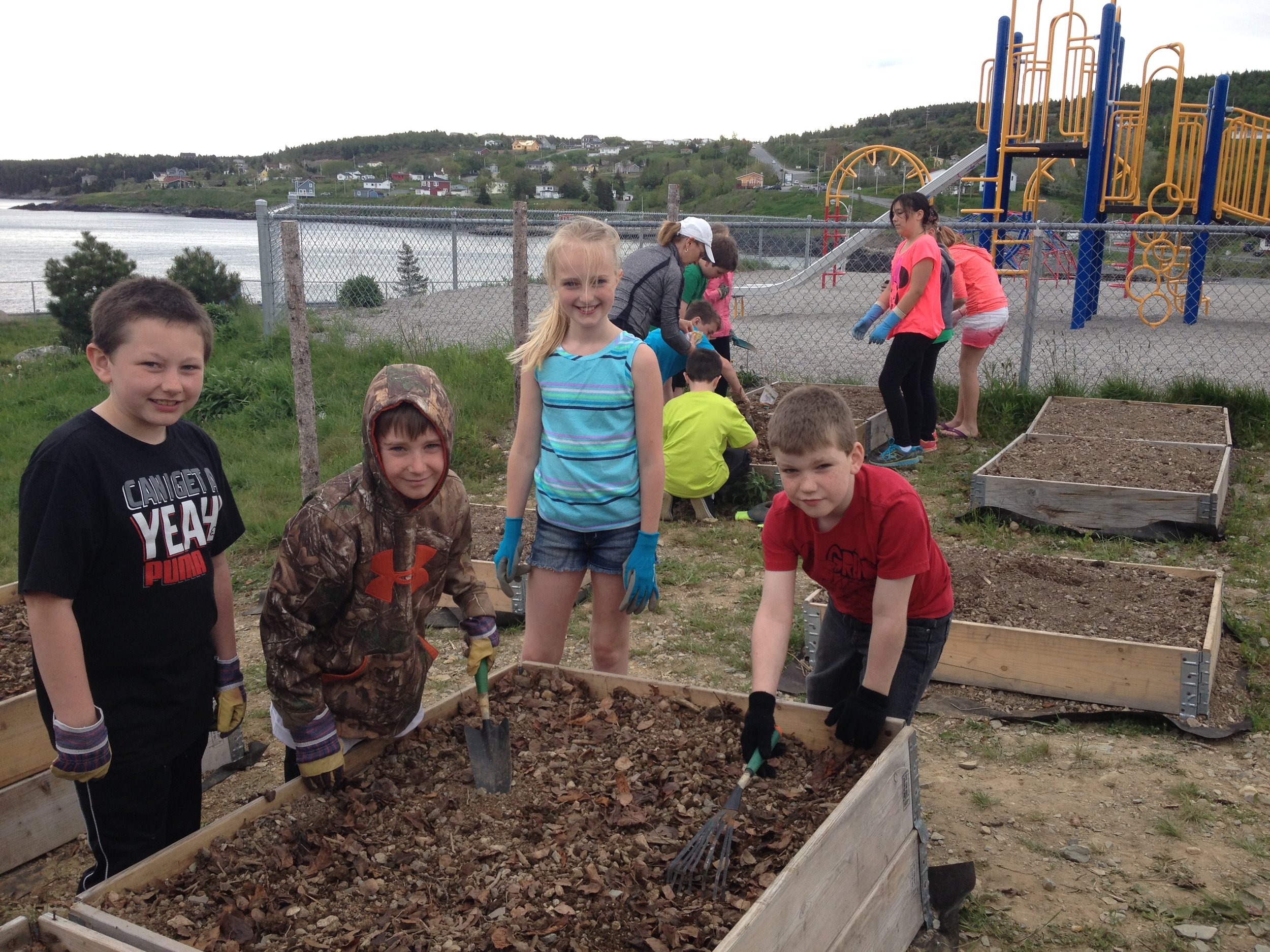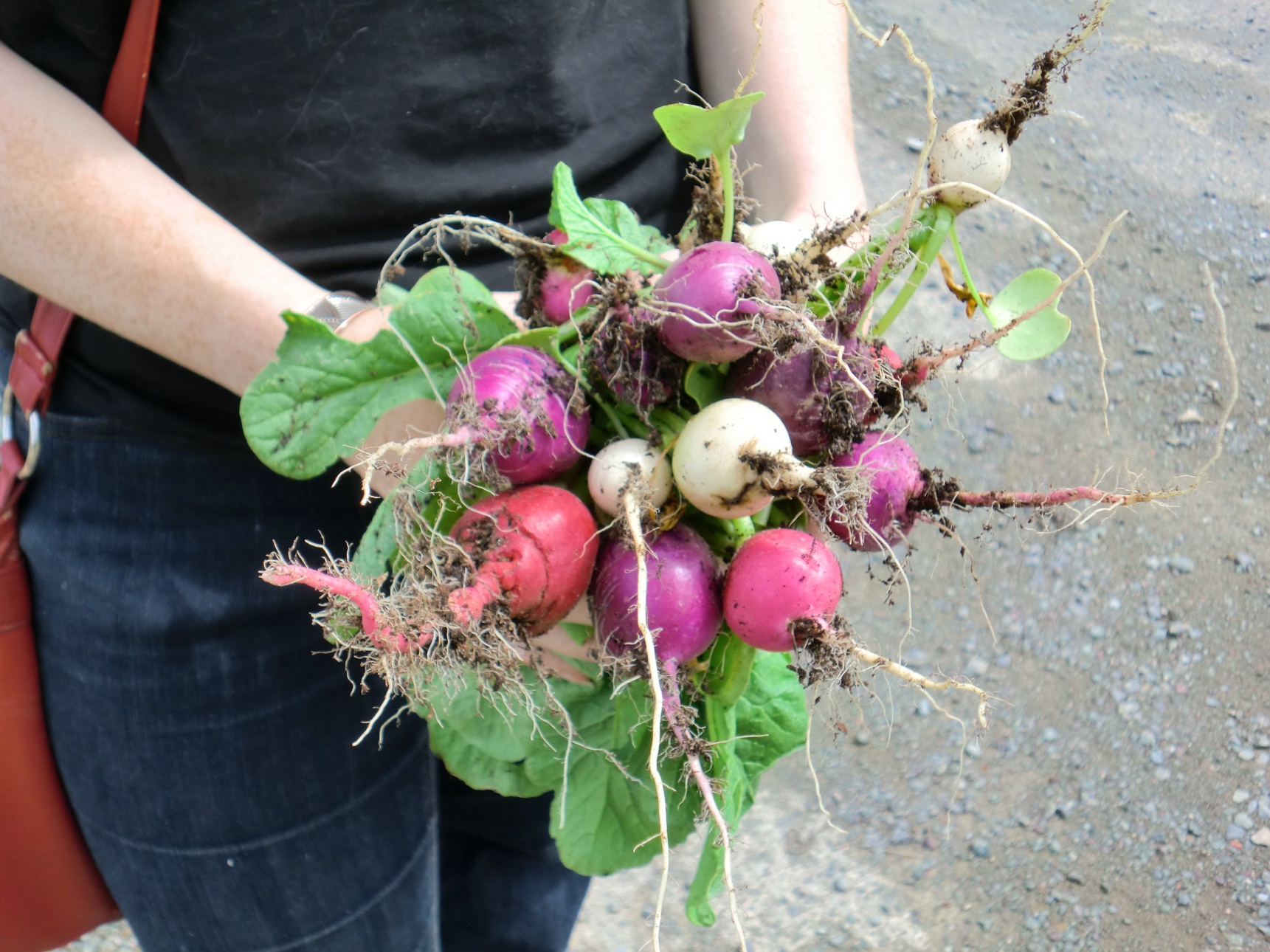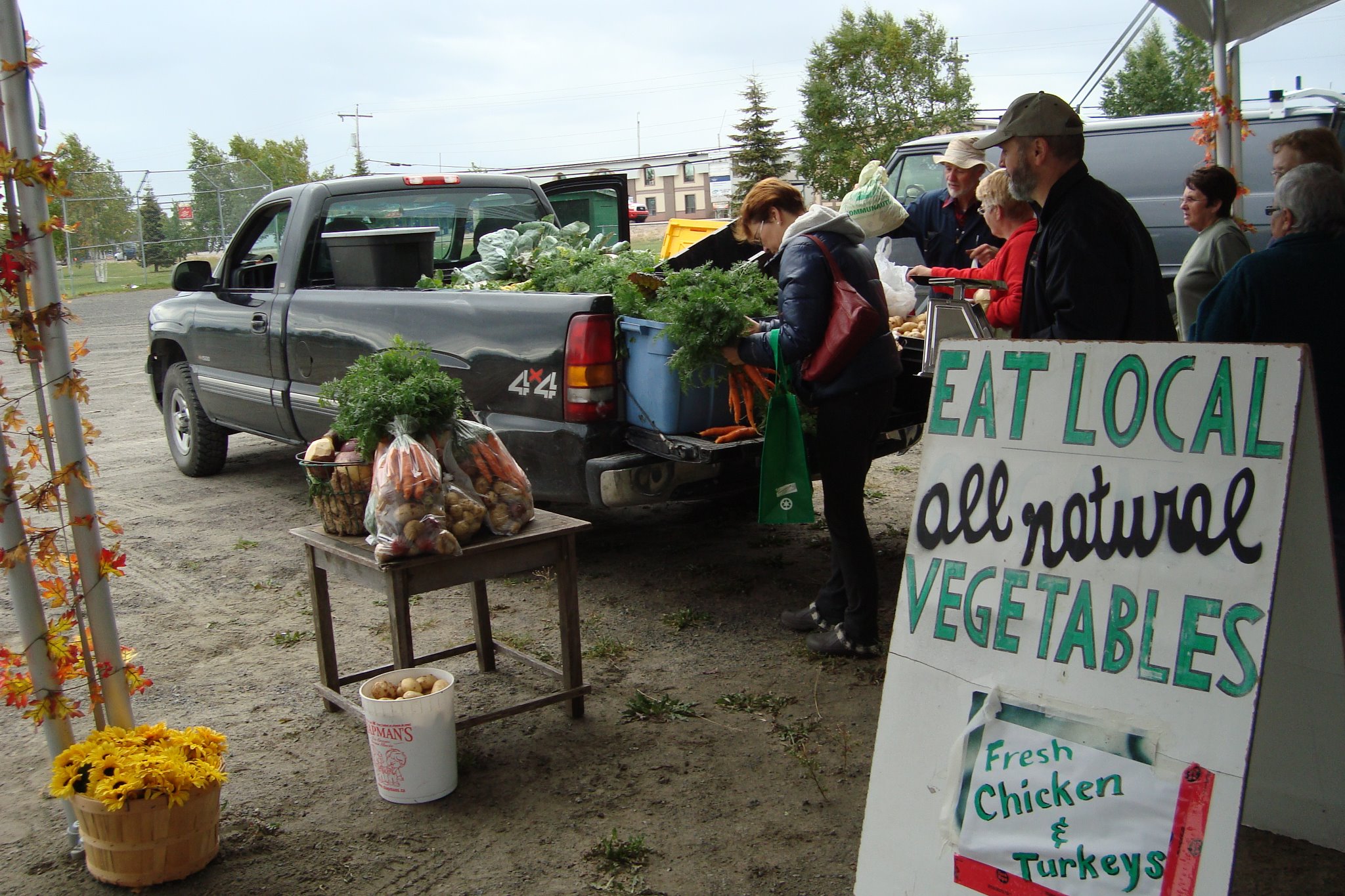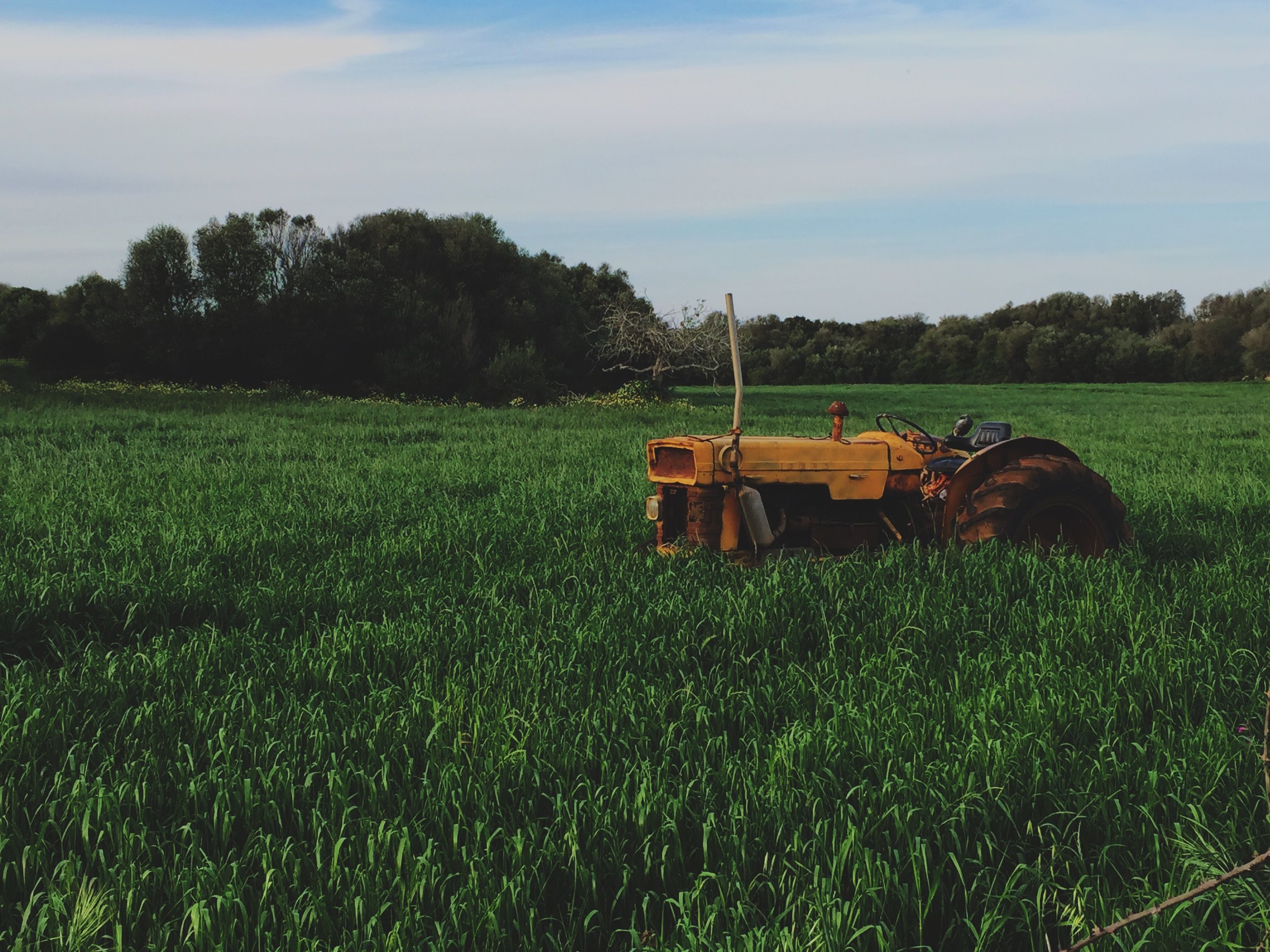Everybody Eats:
A Roadmap for Advancing Food Security in NL
This nationally recognized project is now three years in the running. It continues to convene key players from the public, private, and community sectors, so we may all – from farmers and fishers to policy makers and consumers – work together in building a more vibrant food system, and a more food secure Newfoundland & Labrador
THE NEED FOR ACTION ON FOOD SECURITY IN NL
Everybody eats is a simple statement, but a complex challenge in Newfoundland & Labrador.
The island of Newfoundland is cut-off from mainland Canada by the ocean, and Labrador is a vast land of isolated communities. Our geography and population dynamics create a lot of unique challenges in providing our communities with consistent access to healthy and affordable food.
You can read more about these issues on our What Is Food Security? page, which lists many statistics, and summarizes the state of food security in Newfoundland & Labrador.
Because of these challenges, there has been a recent surge in action and interest in local food security, from the public, government, and community organizations throughout the province. It is in everybody's interest to build a better food system in NL.
Our Everybody Eats project was established to channel this momentum, by sitting key players and policy makers in the food industry around the same table, in order to catalyze actionable steps towards a more vibrant food system, and a more food secure Newfoundland and Labrador.
2015: CATALYZING PROVINCE-WIDE PARTNERSHIPS AND ACTION ON FOOD SECURITY
In 2015, Food First NL partnered with the NL Public Health Association to develop and lead Everybody Eats: A Provincial Dialogue on Food Security in NL.
Everybody Eats was launched with the release of a Discussion Paper on the state of food security in NL. The discussion paper outlines an introduction to the local food system, provides an overview of the current state of food security in NL, and highlights existing food security efforts already underway in the province.
The launch of the paper sparked a provincial discussion on food security in NL. You can read this Paper or its Discussion Guide by clicking on them here:
An advisory committee of 20 organizations from various sectors and regions of the province was assembled and engaged to mobilize action on food security in NL. The committee includes representation from agriculture and fisheries, chefs and restauranteurs, dietitians and public health practitioners, emergency food service providers, policy makers, and more.
They informed and guided the process of identifying our food system’s primary issues, and possible resolutions.
2016: 2,200 HOURS OF
CONVERSATION & COLLABORATION
During the dissemination of Food First NL’s Everybody Eats Discussion Paper, more than 900 key people participated in over 2,200 hours of discussion on food security in our province.
This comprehensive level of engagement was achieved through 26 events, and via an online forum. At each engagement session, participants were asked a common set of questions to help identify priorities, challenges, and opportunities for advancing food security in NL.
In 2016, Everybody Eats adopted a Collective Impact Approach to advance food security in Newfoundland & Labrador. The purpose of a Collective Impact Effort is to obtain commitment from leaders across different sectors to solve a complex social problem, such as food security.
It ensures every player necessary for change is sitting aboard same the ship, charting the same course, towards the same goal, which increases the odds of a positive outcome. For example, to resolve our issues with food production, we need local farmers at the same table as local policy makers.
The public sector is in control of things like roads, ferries, and agricultural and wildlife policies that affect the food system. The private sector is composed of the farmers, fishers, chefs, shops, and food producers who produce the food we eat. Naturally, we need the key players from both sectors at the same table, so food producers can communicate what they need to enhance local food production and security, and policy makers can communication their capacity to meet those needs.
The Collective Impact model of Everybody Eats has ensured the Community Sector is at the table too: they’re the ones who, for example, deliver local food programming via initiatives like food banks, or community gardens and kitchens.
2017: WHAT WE HEARD SUMMARY SPAWNS 3 CLEAR THEMES
In October of 2017, Food First NL released Everybody Eats: What We Heard.
The document summarizes 2 years worth of engagement and discussion among key stakeholders on food security in our province.
You can read it by clicking the cover image to the right.
During this 2-year engagement process, 3 key themes and actionable areas were heard with the most consistency:
Key Theme 1: Increase Local Food Production
“Let’s grow all our own food. Make growing it ourselves part of the culture, like it used to be. There are Newfoundlanders still alive who grew up like that, [and] growing techniques have improved so much since those days. Of course we can feed ourselves, we’ve done it before and we’ll do it again.””
Our province’s heavy reliance on imported products, and the fact we produce so little food here, were central issues throughout Everybody Eats’ engagement process. Relying so heavily on imported foods affects the quality, availability, and affordability of food for our people.
Participants felt there are two primary ways of increasing local food production: produce more food locally through commercial agriculture, fisheries, and aquaculture, and, produce more food for personal consumption through things like community gardens and farmer’s markets.
Key Theme 2: Improve Access to Healthy Food
“[We could] improve transportation so people can get to grocery stores, especially for seniors and people with disabilities. At the same time, find alternative ways to get people the food they need: bring it to them at community markets, mobile stores, meals on wheels.”
Throughout the Everybody Eats engagement process, 2 inter-connected issues emerged regarding access to healthy food: healthy foods tend to be less affordable than their alternatives, and, unhealthy options tend to be more readily available than healthy ones.
One needs only to picture vending machines, corner stores, or cafeterias at local institutions, and the food they’re usually stocked with, to conquer. To quote one participant, “we need to make the healthy choice the easy choice.”
Healthy food is also out of reach for people living on low income, and people living in communities with compromised access to full service grocery stores. Fresh foods take so long to arrive in many rural communities, it's nearly spoiled or of poor quality when it reaches their stores, making the healthy choice the undesirable choice.
Key Theme: 3 Raise Education, Awareness, and Food Skills
“There needs to be a cultural shift. People need to understand that local produce doesn’t just taste better, isn’t just more nutrient dense, isn’t just part of a growing terroir movement. They need to see locally produced food — local farms, market gardens, school gardens, urban gardens — as part of the very fabric of their culture. Local food is what knits us all together.””
Participants spoke about the need to enhance education around the relationship between food and health, and the awareness of our province’s food security issues. Our province is home to the highest rates of obesity and diabetes in the country, and we have a very low consumption of fruits and vegetables.
It was suggested awareness could be raised particularly well through the formal education system, and public awareness campaigns. The formal education system, spanning kindergarten to grade twelve, presents an exceptional opportunity to better our children’s relationship with food and nutrition, while building food skills like cooking, gardening, food preservation, and fishing.
NOVEMBER 2017: PROVINCIAL PLANING FORUM
“We need to establish an effective succession planning for existing farms before it is too late, current farmers are getting older and we need the next generation of farmers to take over. ”
In November of 2017, the Everybody Eats Leadership Team hosted a Provincial Planning Forum on Food Security. The Forum brought together more than 85 key stakeholders in the provincial food system, and was attended by premier Dwight Ball, who provided opening remarks.
The goal of the forum was to shift the project from engagement to action. It was time to stop talking about food security issues, and start doing something about them.
Through a series of hands-on, interactive exercises, attendees discussed and reflected on findings from the Everybody Eats engagement process, and worked together in identifying a first round of action points to improve food security in NL.
The forum also provided an opportunity to enlist potential candidates to form working groups that would develop and enact these action areas.
WINTER 2018:
EVERYBODY EATS ACTIONS AREAS ANNOUNCED
Using input and feedback generated at the Provincial Planning Forum, the Everybody Eats Leadership Team identified 3 initial action areas for the next phase of the Everybody Eats project.
These action areas were identified as priorities on the basis of their urgency, potential for impact, and the viability of their implementation resulting in productive action in advancing food security.
In time, more ideas borne out of the Provincial Planning Forum will be used to inform work on food security issues. For now, the priorities are:
- Cost of Food and Household Food Insecurity*
Exploring and piloting efforts to improve the affordability of healthy food in NL. - Community Food Self Sufficiency
Exploring and piloting efforts to improve our food knowledge and skills, and to improve our access to locally produced and wild foods. - Promotion of Local Food in NL
Exploring and piloting efforts to increase awareness of, and consumption of locally produced and harvested foods.
* To read more about Cost of Food in NL, click here.
EFFECTIVE POLICIES PUSHING FOOD SECURITY FORWARD
Throughout the Everybody Eats engagement process, participants identified the need for supportive policy across all levels of government, and non-government institutions, including schools, hospitals, government buildings, organizations, and businesses.
Thanks to local initiatives like Everybody Eats, we're seeing positive policy changes at the provincial level in NL, including a commitment to double our food production by 2022, as part of the Liberal government's Way Forward strategic plan.
The province has also released significant crown land for agricultural purposes, and made it easier for local fishers to sell to local retailers and restaurants. As another example, to facilitate the sharing of traditional food skills, the province has also reduced the legal age of hunting small and large game to 12 and 16 respectively.
EVERYBODY EATS HAS EARNED NATIONAL RECOGNITION
For its immense and collaborative effort in mobilizing this important work, Everybody Eats has garnered national attention.
In fact, Food First NL’s model is being adapted and implemented by the New Brunswick Food Security Action Network, and the approach was reviewed by Food Secure Canada in developing their efforts to inform the creation of a National Food Policy.
In March of 2018, Food First’s Executive Director Kristie Jameson and Everybody Eats Project Manager Ethan Doney attended the Maple Leaf Centre for Action on Food Security’s inaugural, national symposium on food security, where Jameson sat on a panel that focussed on policy levers that can advance issues of food security.









